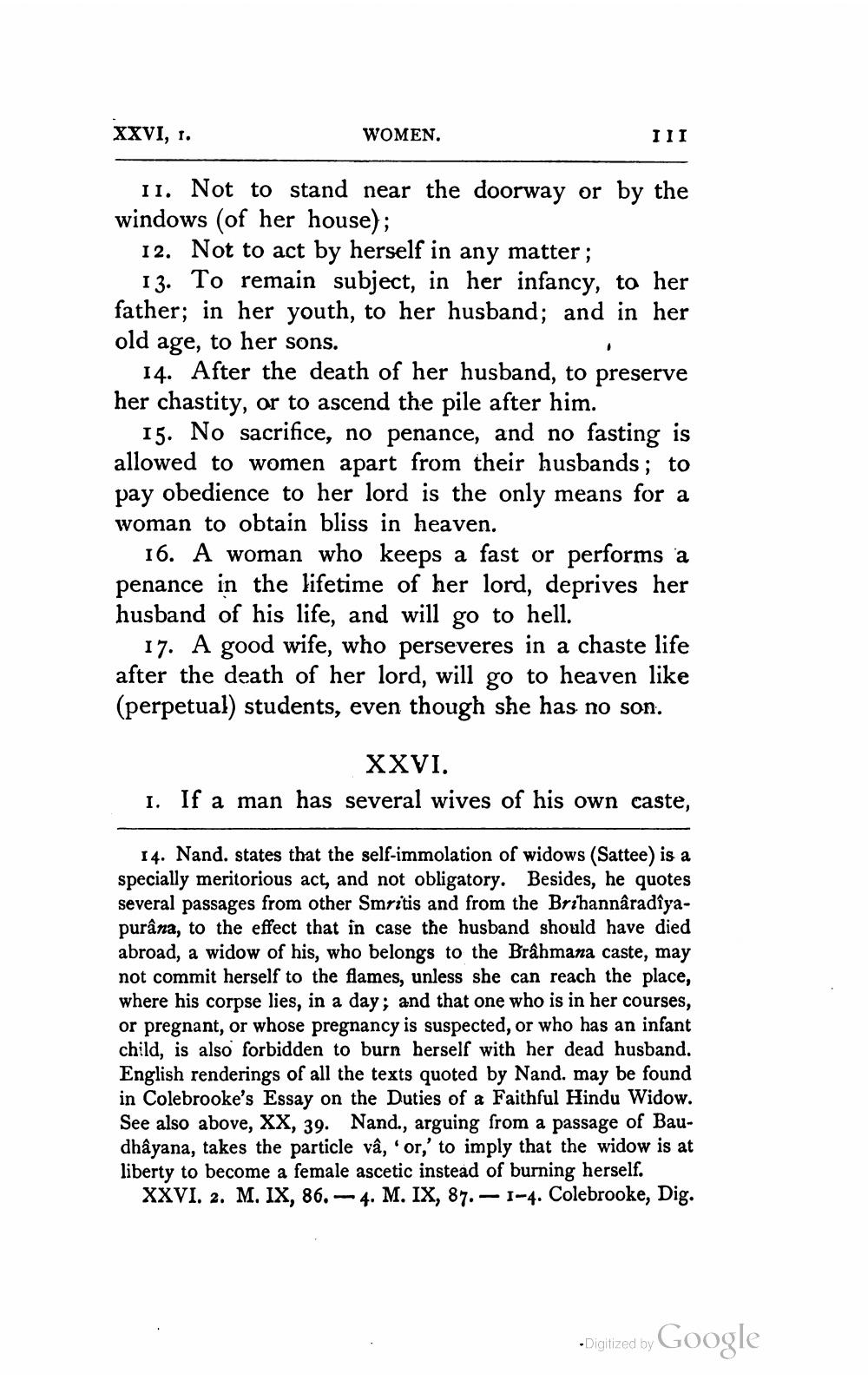________________
XXVI, 1.
WOMEN.
III
11. Not to stand near the doorway or by the windows (of her house);
12. Not to act by herself in any matter;
13. To remain subject, in her infancy, to her father; in her youth, to her husband; and in her old age, to her sons.
14. After the death of her husband, to preserve her chastity, or to ascend the pile after him.
15. No sacrifice, no penance, and no fasting is allowed to women apart from their husbands; to pay obedience to her lord is the only means for a woman to obtain bliss in heaven.
16. A woman who keeps a fast or performs a penance in the lifetime of her lord, deprives her husband of his life, and will go to hell.
17. A good wife, who perseveres in a chaste life after the death of her lord, will go to heaven like (perpetual) students, even though she has no son.
XXVI. 1. If a man has several wives of his own caste,
14. Nand. states that the self-immolation of widows (Sattee) is a specially meritorious act, and not obligatory. Besides, he quotes several passages from other Smritis and from the Brihannâradîyapurâna, to the effect that in case the husband should have died abroad, a widow of his, who belongs to the Brâhmana caste, may not commit herself to the flames, unless she can reach the place, where his corpse lies, in a day; and that one who is in her courses, or pregnant, or whose pregnancy is suspected, or who has an infant child, is also forbidden to burn herself with her dead husband. English renderings of all the texts quoted by Nand. may be found in Colebrooke's Essay on the Duties of a Faithful Hindu Widow. See also above, XX, 39. Nand., arguing from a passage of Baudhầyana, takes the particle vâ, or,' to imply that the widow is at liberty to become a female ascetic instead of burning herself.
XXVI. 2. M. IX, 86.- 4. M. IX, 87. - 1-4. Colebrooke, Dig.
- Digitized by Google




